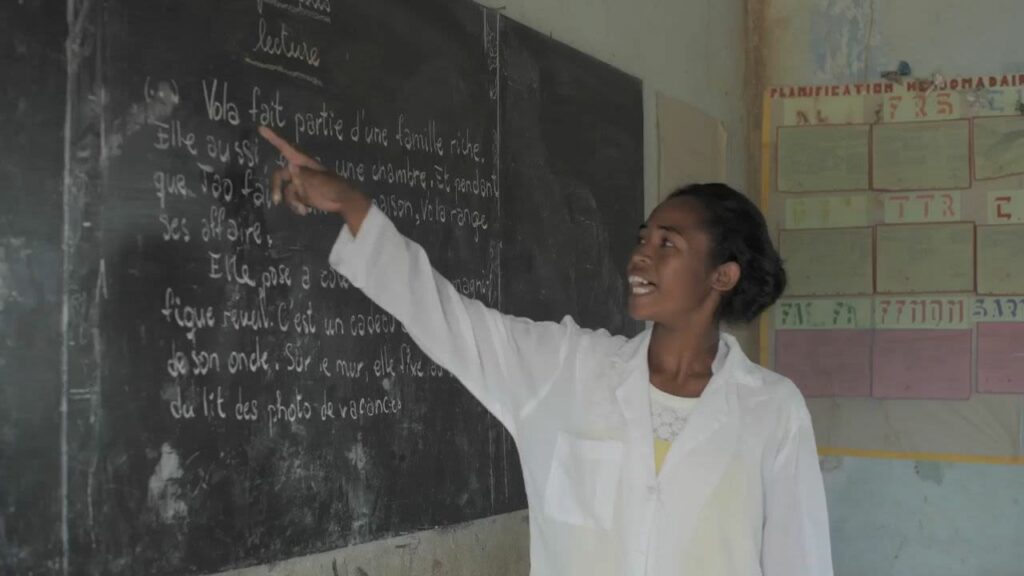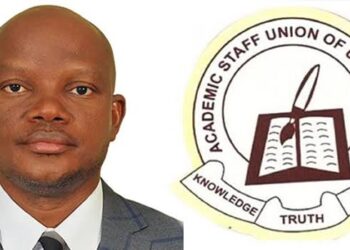
WASHINGTON, USA, February 04, 2025 -/African Media Agency (AMA)/- Transforming the basic education sector by improving the quality of learning from an early age can drive inclusive growth in South Africa, according to a World Bank report released today. The report also provides an analysis of the country’s recent economic performance and prospects for the medium term.
The fifteenth edition of the World Bank’s South Africa Economic Update, entitled Learning: Overdue Reforms and Emerging Priorities for the Basic Education, asserts that the country’s successful political transition following elections and the almost total absence of energy load shedding in 2024 have brought the economy back on a positive trajectory. Economic growth is projected to recover from an estimated rate of 0.8 percent in 2024 to 1.8 percent in 2025 and 2 percent in the medium-term. However, such an expansion – which entails doubling the GDP growth rate achieved over the past decade – is still not sufficient to achieve significant progress toward inclusive growth and job creation. At this pace, the report estimates that it will take about 60 years for South Africa to become a high-income economy, while existing high levels of poverty and inequality are unlikely to change significantly.
However, South Africa’s economic future could become brighter if the government acts decisively in three directions. First, it could build on recent reforms to further address the severe infrastructure constraints in the energy and transport sectors to encourage business development and increase households’ disposable income. Second, it could take a series of concrete actions to improve the efficiency of public spending. If the state cannot spend more, it will have to spend better. Third, the authorities could strengthen the country’s human capital to catch up with other upper middle-income countries as this factor plays a crucial role in economic and social development.
“Education is a powerful driver of development, and one of the strongest instruments to reduce poverty and promote equality. It is the necessary foundation for a prosperous economy. South Africa can boost inclusive growth and equality by investing in its people. A well-functioning basic education system is crucial for fostering the skills of South Africa’s next generation and driving inclusive growth,” says Satu Kahkonen, World Bank Country Director for South Africa.
“This research by the World Bank Group is well aligned with the government’s priorities to ensure all children in South Africa have access to quality education. Interventions such as developing partnerships with stakeholders to broaden access to quality and affordable education, as well as investing time and resources in teacher training will certainly contribute to measurable, positive impacts for our people and the economy,” says Honorable Siviwe Gwarube, Minister of Basic Education, Republic of South Africa.
South Africa prioritizes inclusive growth, with education at the core, but the country faces a learning crisis. Despite significant improvements in learning since the end of the apartheid, about 80 percent of learners in grade 4 could not properly understand what they were reading in 2021. Basic education is also facing a growing financial challenge as budget allocations for the sector have been decreasing in real terms over the last few years. At the same time, the education system needs to expand to accommodate an additional 1.2 million learners by 2030. The ability of the basic education system to efficiently deliver good outcomes is affected by low quality teaching and insufficient accountability. It also suffers due to the proliferation of several small-to-medium scale reading programs that are uncoordinated and do not achieve scale after several years of piloting. Equally worrisome is that the Government’s pro-poor funding mechanism for education is not achieving its objective.
To contribute to the policy discussion, the Economic Update proposes a series of possible reforms that can be considered as an initial platform by the authorities in their efforts to enhance access to, and the quality of, basic education:
- Firstly, the report urges the government to prioritize the foundational years of education, from early childhood to Grade 3, as these years are crucial for long-term learning. It recommends enhancing early childhood services and scaling up early grade reading interventions, including scripted lessons, teacher coaching, quality home-language materials, dedicated reading instruction time, and regular assessments of reading and math skills.
- Secondly, the government could collaborate with the private sector to improve both access to and quality of education, particularly for low-income learners, addressing gaps the public sector cannot fill alone. Only 5.5 percent of South African school children attend independent schools compared to global averages of 19 percent (primary school) and 27 percent (secondary school). Partnerships with NGOs and building on successful pilots in some provinces could expand the networks of affordable schools and enhance learning efficiently.
- Lastly, to improve efficiency and equity in education, the report suggests adopting interventions such as Teacher Professional Standards to guide training, scaling up effective interventions, and revising the Norms and Standards for School Funding to address inequities. In the short term, it recommends focusing on improving early-grade learning in the poorest schools with the lowest performance, supported by a revived assessment system to identify struggling schools.
Distributed by African Media Agency (AMA) on behalf of World Bank Group.
Contacts:
World Bank:
In South Africa: Lavinia Engelbrecht, +2773 267-6073, lengelbrecht@worldbankgroup.org
In Washington: Daniella van Leggelo-Padilla, (202) 473-4989, dvanleggelo@worldbank.org
Department of Basic Education:
Mr. Elijah Mhlanga: +2712 357 3773, mhlanga.e@dbe.gov.za / media@dbe.gov.za
About the South Africa Economic Updates: The South Africa Economic Updates aim to contribute to policy debates in South Africa and beyond by providing independent, rigorous, and timely analysis connecting South Africa with global developments while also helping benchmark the country against international trends. Its stakeholders include the government, academia, and the media, as well as international partners and the wider population interested in South Africa’s economic development. Each edition of the Economic Update includes a section on recent economic developments and the country’s outlook and a special focus section discussing an issue pertinent to its development trajectory.
About the World Bank Group: The World Bank Group has a bold vision: to create a world free of poverty on a livable planet. In more than 100 countries, the World Bank Group provides financing, advice, and innovative solutions that improve lives by creating jobs, strengthening economic growth, and confronting the most urgent global development challenges. The World Bank Group is one of the largest sources of funding and knowledge for developing countries. It consists of the World Bank, including the International Bank for Reconstruction and Development (IBRD) and the International Development Association (IDA); the International Finance Corporation (IFC); the Multilateral Investment Guarantee Agency (MIGA); and the International Centre for Settlement of Investment Disputes (ICSID). For more information, please visit www.worldbank.org, www.miga.org,and www.ifc.org.
The post South Africa: Transforming the Basic Education Sector Can Drive Inclusive Growth appeared first on African Media Agency.











